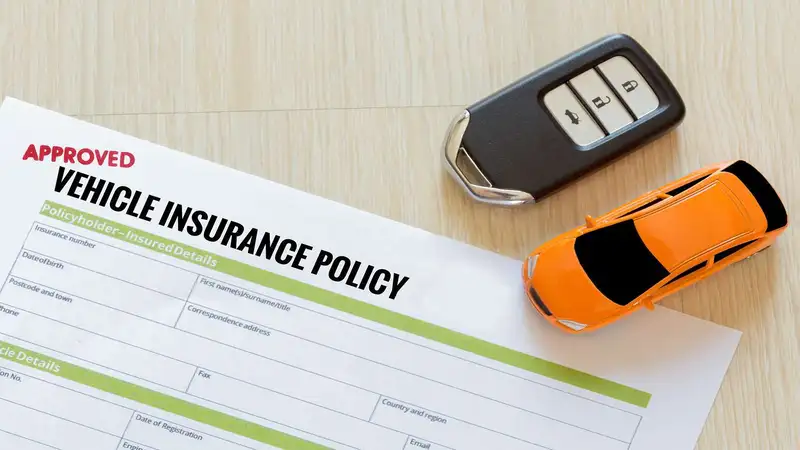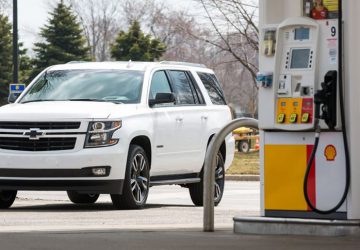Smart Guide to Car Insurance: Save More, Stress Less
Navigating car insurance options can be complex. This guide offers practical advice to help you make savvy decisions while saving money and time.

Understand Your Car Insurance Rates
When you receive your car insurance bill, it might seem like the rates are plucked out of thin air, but they aren't. Your premiums are meticulously calculated based on a variety of factors that insurers use to determine how likely you are to make a claim. Understanding these and minimizing associated risks can lead to considerable savings over time.
Look Behind the Numbers
Study your current plan. Are you paying for comprehensive coverage on an older vehicle that might not need it? If you own your car outright and its cash value is low, consider whether you need anything beyond the minimum liability coverage required by your state.
Compare Annually
Make it an annual habit to shop around for insurance to ensure you're still getting a competitive rate. Insurers often adjust pricing models, and they might offer new customer discounts that good customers don't receive.
Know the Insurance Factors
Multiple factors aid insurers in determining your rate and it pays off to know what plays into their complicated calculations.
Driving Record
A clean driving record is one of your top assets. Infractions like speeding tickets, DUIs, or accidents signal higher risk which means higher rates. Keep the lead foot in check and obey traffic laws to maintain lower premiums.
Credit Score
In many places, a better credit score can equate to lower insurance rates. Be sure to routinely check your credit report for inaccuracies and work on improving your overall credit standing through timely bill payments and reducing outstanding debt.
Age, Gender, and Marital Status
Statistics show certain demographic groups behave differently behind the wheel. These stats inform insurers as they assess risk. While you can't change these, it can be helpful to understand why and how they affect your quote.
Vehicle Type
The type of car you drive impacts your rate. A sports car might attract higher rates than a minivan due to the risk profile and potential repair costs. If you're in the market for a new vehicle and insurance rates are a concern—think robust safety features and a moderate performance profile.
Annual Mileage
How much you drive in a year can affect your premiums. Less time on the road could lower the odds of getting into an accident, so rates might be lower for those with short commutes or those who frequently work from home.
Geographic Location
Urban areas with dense traffic and higher crime rates often lead to increased insurance costs compared to rural settings due to greater risk of accidents and theft.
Engage in the Quoting Process
1. Gather the Necessary Information
Having all necessary information at hand can streamline the quoting process significantly. This includes your vehicle's information, driving record/details, and personal data that might impact the insurance - like addresses, employment, and annual mileage.
2. Understand Coverage Options
There are various levels of coverages, from liability to comprehensive and collision, each with its advantages and price points. Be clear on what these involve so you can make an informed choice according to your need for risk protection versus your desire to save on premiums.
3. Seek Discounts
Very insurers offer several discounts, but you usually have to dig for them or ask outright. These can be for good driving records, secure parking, professional affiliations, or even student grades. It never hurts to ask; the savings might be significant.
4. Use Price Comparison Tools
Many sites can compare quotes from different insurers quickly and effectively. Use these tools to understand the range of what's available.
5. Contact Insurance Agencies Directly
After your online research, pick up the phone. Speaking with agents gives you more negotiation power, elucidates unclear online points, and sometimes beats online quotations due to unadvertised in-agency promotions.
6. Consider Bundling Policies
If you have more than one insurance need (like homeowners/renters & auto), bundling them under the same insurer typically yields cost savings.
7. Go Paperless and Opt for Autopay
Some insurers will offer a reduction in your premium for choosing e-delivery of statements and auto-pay options.
Review Your Policy Before Renewal
Always reassess your coverage prior to renewal; ask yourself whether changes in life circumstances warrant adjustments to the policy. With each breath of life brings chance and change — your insurance should adapt accordingly.
To navigate the sometimes fraught waters of car insurance, be informed, ask pointed questions, and always look out for ways to operate safer and savvier on the roads of life's financial affordableway. We face enough hazards in our day-to-day travels; your insurance rate—and peace of mind—shouldn't add to them. By thoroughly understanding the factors influencing your car insurance and actively participating in the quoting process, you can nab the top rates for yourself and your family without compromising essential coverage. Driving with the knowledge that you're protected and not overpaying, will make those journeys all the sweeter.
-
1

Ultimate Feast for the Eyes: Top Cooking Shows Every Foodie Must Watch!
-
2

Maximize the Lifespan of Your New Dental Implants with Expert Care Tips
-
3

Ascending with Ease: The Revolutionary Journey of Stair Lift Technology
-
4

Maximizing Your Walk-In Tub's Lifespan: The Ultimate Guide to Enhanced Performance and Durability
-
5

Unlock Bigger Savings: Master the Art of Using Your Gas Rebate Card!









